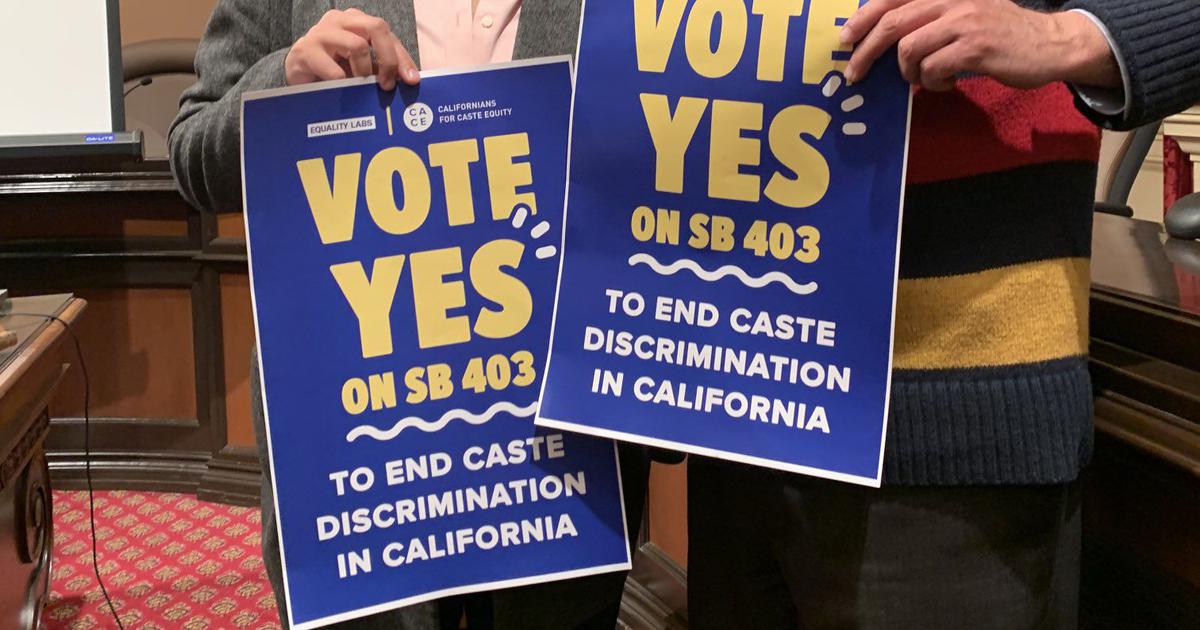Indian Americans ask California Gov to veto anti-caste discrimination bill

Indian Americans ask California Gov to veto anti-caste discrimination bill
A group of Indian Americans organized a peaceful protest rally in the state capital of Sacramento, California, with the aim of urging California Governor Gavin Newsom to veto an anti-caste discrimination bill recently passed by the State Assembly. The protestors argue that the bill is discriminatory and unfairly targets not only Indians in general but also Hindus in particular.
The protest reflects concerns within the Indian American community about the potential impact and implications of the proposed legislation. The participants are advocating for the bill to be vetoed, believing that it could lead to unintended consequences or issues related to religious and cultural practices. They are seeking to engage with Governor Newsom to ensure that their concerns are considered before any final decisions are made regarding the bill’s fate.

This kind of civic engagement and peaceful protest is a common means for citizens to express their views and concerns on legislative matters, and it underscores the importance of public participation in the democratic process. The outcome of the bill will depend on the legislative and executive processes and the assessment of its potential effects on the community it affects.
If California Governor Gavin Newsom signs the bill into law, California would become the first state in the United States and the first jurisdiction outside of India to prohibit discrimination based on caste. The legislation proposes an amendment to California’s Unruh Civil Rights Act by including caste as a protected category under the umbrella of ancestry.
The Indian American community is actively lobbying for Governor Newsom to veto SB403, expressing concerns about the potential discriminatory effects of the bill on their community, particularly Hindus. During a gathering of Indian Americans in front of the State Capitol in Sacramento, Samir Kalra of the Hindu American Foundation urged Governor Newsom to veto the bill. The protestors are appealing to the governor to take a stand against discrimination and racial profiling of their community.
The fate of the bill now rests with Governor Newsom, who will make the final decision on whether to sign it into law or veto it. His decision will take into consideration various factors, including the concerns raised by the Indian American community and the broader implications of the legislation.
The protestors at the peaceful rally in Sacramento, many of whom had traveled from different parts of the state, used posters and banners to convey their message. Their main appeal was for Governor Gavin Newsom not to sign the bill into law, as they believe it could lead to discrimination against the Hindu community. They argued that the legislation, if enacted, would result in racial profiling of the Hindu community, a concern they find deeply troubling.
The Hindu American Foundation has expressed its commitment to protecting the rights of Hindu Californians and has stated its intention to explore all available options. This includes planning to file a lawsuit to challenge the bill and its potential impact on the Hindu community in California.
The peaceful protest and the intention to pursue legal action underscore the significance of the issue for the Indian American and Hindu communities in California. The final decision on the bill’s fate will depend on Governor Newsom’s assessment of these concerns and the broader implications of the proposed legislation.
SB403, also known as the ‘Discrimination on the basis of ancestry’ bill, was introduced in February by Senator Aisha Wahab. Senator Wahab holds the distinction of being the first Muslim and Afghan-American woman elected to the California state legislature. The bill received strong support in the California Senate, where it passed with an overwhelming vote of 31-5 last week.
The bill’s passage in the Senate reflects the legislative process at the state level, where elected representatives debate and vote on proposed legislation. The bill’s content and potential impact were considered by the senators during the legislative process, leading to its approval in the Senate.
The next step in the legislative process is for the bill to be signed into law by the governor, who has the authority to approve or veto it. The bill’s passage in the Senate signals that it has cleared one major hurdle on its path to becoming law, but its fate ultimately rests with Governor Gavin Newsom.




